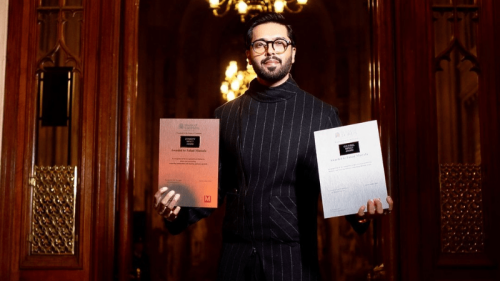During the medieval period, the church dominated every aspect of life in Europe. The Pope was the spiritual and temporal leader whose authority could not be challenged. The rulers were subordinate to him and excommunicated for defying him.
If a Christian deviated from the teachings of the church, he would be declared a heretic and — in the extreme — burnt alive at the stake. The Inquisition traced heretics and made certain that the teachings of the church would remain unchallenged. It was the age of certainty and there was no space for any doubts about religion.
The major concern of the church and people was to attain salvation of the soul. In order to achieve this, people were urged to renounce the world and its affairs, as it was considered sinful, corrupt and not worth living in. To achieve serenity in the next world, people were advised to observe religious rituals.
In his book The City of God, Saint Augustine, the famous theologian, denounced the material world and urged Christians to look towards the everlasting and heavenly city of God. He believed that the Christian world would not get salvation through good deeds but only by the Grace of God.
In the 16th century, the reform movement challenged the authority of the Pope and the church and a new agenda was presented for salvation of the soul. John Calvin, a radical reformer put forth the concept of predestination; according to which all human beings by birth are predestined to go to heaven or hell but believers, by the Grace of God, would only go to paradise. He believed that Christ bore the punishment for the sins of the believers which is why they are unconditionally predestined by God for salvation.
These religious beliefs influenced the Christians to concentrate all their energies to prepare for the next world. The church condemned new ideas that opposed its teachings. As far as the church was concerned, the object of knowledge was to legitimise and justify religion hence philosophy, literature and art served religion.
Despite restrictions and prohibitions imposed by the church, the new way of thinking first emerged in the 17th century which changed man’s thought process about man and the natural world, as a result of scientific revolution. This was contrary to the idea propounded by the church. Science could now explain many things that were previously validated by revelation, according to the church.
Scientific knowledge determined the truth through observation and experiment and in this way, truth was no more regarded as absolute and it changed as new theories and discoveries came into being. Scientists and philosophers studied nature and human society in order to know more about its structure and working. This changed people’s way of thinking and they began to see the world as pleasant and enjoyable, and became interested in world affairs.
This intellectual development liberated and transformed the whole society from the grip of religion and dogma. Art, literature, music, philosophy and science was no longer under church control and new experimentation and innovation came into effect. People wanted healthy lives and to find cure for disease, so new medication was developed. Cultural activities revived as sport arenas, libraries, galleries, music halls, museums, and theatre reverberated with new energy and vitality.
The movement of enlightenment created new philosophical ideas for the larger interest of people and converted society’s political, social and economic ideology.
Europe survived the age of obscurantism, religious rigidity, superstition and hegemony of church. Intellectuals who raised their voice against the existing system endured hardships and some even lost their lives, but their ideas slowly and gradually inspired people to change this world.
Since people wanted to change their environment, through new ideas of enlightenment and scientific and technological development, European society gradually transformed, striving to become a better place for the people. History has taught us that only in a pluralistic society, can new ideas blossom.














































